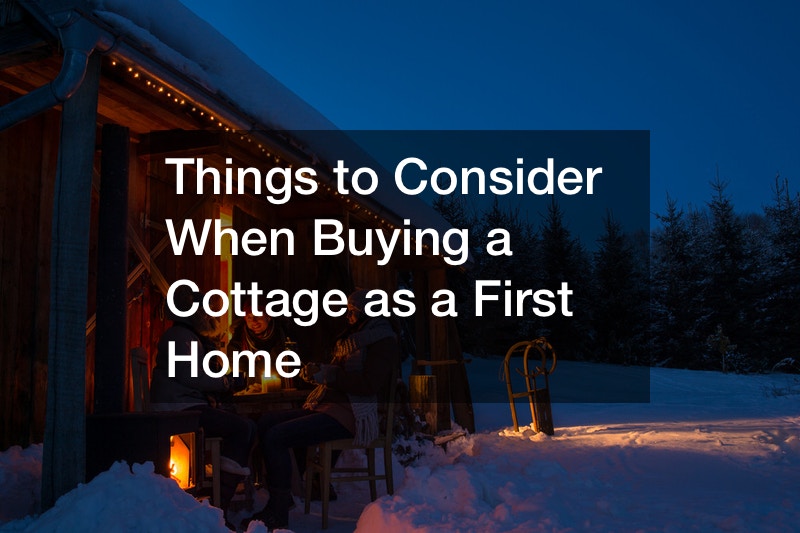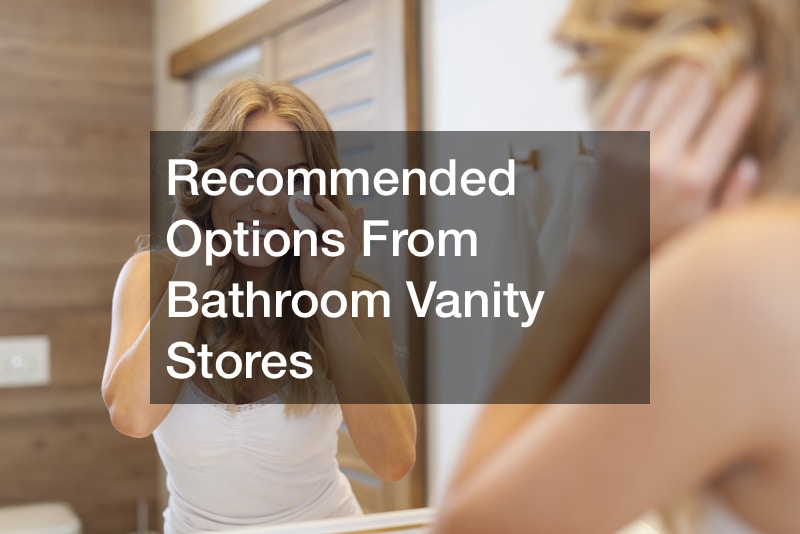
Cottage living is very different from suburban dwelling settings and often offers its occupants a more relaxing pace of life. It also allows them more time with family and friends since dashing off to visit someone across town can take all day. A cottage community often has few rules and regulations, which are often left up to each household. Things like lawn care and mowing the grass on a weekend morning are not uncommon in these settings. A cottage community also makes it easier for residents to have pets that would be out of the question in a more urban setting. If you are considering buying a cottage as a first home, then you need to choose carefully. This is because you must consider several things before making this kind of move. This article will discuss some of those aspects comprehensively.
Location

Location should be considered when buying a cottage as a first home. This means thinking about how far from work your cottage will be. Some families who move into town stay just close enough so that their commute is short. A good place not far from work can be very important, but some people also like to make the most of the weekends and live further out of town.
Moreover, location is important for people who like to get up and go somewhere else on the weekends; it makes sense to get something close by. But there are also incentives to live further outside the city. You might pay less in taxes; prices may be lower because you don’t need as much space (for instance, if your kids are grown), or you might not have a long commute so you can spend more time with family or friends. For many young adults, this is a priority since they still live with their parents after all. If you like getting up and going on day trips, you might want to get a cottage that’s close by. And if you have a large family, it might be cheaper in taxes if your children are grown or if you don’t need much space, which means more money for a nicer cottage.
Never Overspend
The price of real estate can vary depending on many factors. Location impacts values, but proximity to water is often one of the determining factors in real estate value for cottages. A lack of waterfront access will reduce the value of a property that might otherwise be priced higher due to its location or aesthetics. The dwelling condition also affects demand because buyers are willing to pay more for renovated homes than those requiring renovations.
First-time buyers must try not to overspend on their properties if they want them to be affordable. Overpaying can reduce the amount of money available for renovations because the buyer could default on their mortgage payments sooner than expected or make it difficult to move on if interest rates rise.
Buying an expensive cottage is especially risky because there may be nothing left after renovations are complete. The market value that needs extensive renovation compared with one ready for occupancy will likely reflect the lower price. In addition, cottages require regular upkeep, such as black mold removal, and annual expenses add up quickly if owners do not plan for them in advance. Cottage owners should understand how much they can afford before buying a property and stick to it. Therefore, you should try not to overspend when buying a cottage as a first home.
Take Your Time Looking Around

One of the most important factors to consider when buying a cottage as a first home is to take your time looking around. This means to take your time during the evaluation process since it’s easy for excitement or fear to sway your decision-making ability when purchasing cottages as first homes, so take extra care in evaluating them correctly. You could miss something important or misjudge the property entirely because there is so much to consider when buying a property.
There are also more reasons you need to take your time when purchasing cottages as your first home. Firstly, if you make a mistake now, this might be all you can afford for quite some time. Buying a bungalow as a first home might not be the best choice if you want to host large gatherings or have a tall basketball player at your dinner table.
Know what you can afford and look for properties in that range: Cottages as first homes usually come with an older charm, but it might not be easy to make renovations like incorporating a kitchen remodeler. If you buy a cottage that doesn’t suit your needs, you will eventually need to update, which can be quite expensive when it comes to both time and money.
Cottages are usually sold by word of mouth or through local advertisements. You can try looking in the newspaper for cottages listed in your budget range but keep in mind that asking prices are often lower than actual market value. You can also look at real estate agencies, government offices for affordable housing, and websites where you can find listings posted by private owners. If there is an open house on the weekends, it’s best to show up at one of these because they can be a great opportunity to check out several different properties all in one day; don’t forget to take your time.
Ask Questions

It is important to ask questions about the condition of the cottage you consider buying as a first home. If you do not ask or inspect fully, there may be hidden problems or renovations that need to be completed, increasing the price significantly. They could also turn out to be more than what you want for your first home. Any electrical work, water damage repair/renovation, new septic system installation, roof repairs, or general exterior maintenance like landscape lighting could all potentially cause extra costs your purchase price did not include. Ask questions about things you are unsure about and ask to see the receipts or estimates for any work done, even if you choose not to have it redone on site.
Additionally, adding in some questions about potential costs related to renovations would also make sense here. If there are renovations that you suspect might be done to the home before you buy it, it is important to know about them ahead of time. This way, if you decide not to go through with the purchase because of renovations needed, then you aren’t surprised later on and left with a large bill for unexpected costs. This could negate any savings made from purchasing this property in the first place.
Consider All Costs
When buying a cottage as a first home, you have to consider all the costs involved. Before purchasing any home, every buyer should do this, but it’s especially important when considering smaller homes like cottages. This is because so many factors need to be considered with this type of purchase, and not doing so could mean spending thousands more than you intended. Here are the two most important issues you should discuss with your real estate agent before making an offer on your cottage of choice.
Household energy use: The average monthly cost of household energy can vary considerably depending on your location. For example, if your electricity usage is low, it will probably be much less expensive to heat your home. However, if you live where electricity is required to provide heating and hot water, your costs will be significantly higher.
Property taxes: When buying a cottage as your first home, it’s important to know whether or not property tax rates are included in the purchase price or excluded from it. Many properties advertised as taxes included aren’t, but this can vary depending on where you buy and what type of property you’re purchasing.
If your goal is to have a cottage as your first home, it’s important to research what other homes in the area have sold so you know how much you should be paying. It’s also vital that you consider all of the extra costs involved with owning a smaller property, as well as those involved with owning a home in general.
By considering all possible expenses before buying a cottage as a first home, you can rest assured knowing that you’re making an informed and responsible decision about your future home purchase. This will make for both a happier real estate experience and, eventually, when you’ve paid off your mortgage, a happy financial one too.
Don’t Neglect Maintenance
So you’ve saved up some money and are ready to buy your first home. You’re excited, nervous, and probably overwhelmed with all the choices you have to make. People often make their biggest financial decisions when buying their first house. It’s easy to get caught up in the heat of the moment and neglect maintenance such as cheap tree removal as a factor to consider when buying a cottage as a first home. If you don’t want to regret your purchase down the line, here are several maintenance aspects to consider when buying a cottage as a first home.
Outdoor hazards: if there is any indication that there may be outdoor hazards such as flooding or poor drainage, this should be high on your list of considerations before making an offer on a cottage. These conditions could lead to ice problems and the subsequent dangers associated with them.
Infestation: The presence of termites, bees, hornets, wasps, and other pests should be another deterrent that will help you make a well-informed and intelligent decision before buying a cottage as a first home. It’s important to find out if there have been any infestations or treatments for pest control for such conditions in the past couple of years.
Inadequate heating systems: In northern climates, an adequate understanding of heating can save you from being one of those who wears mitts inside their own house because the furnace is broken or not up to code. Suppose previous owners have plugged an oil heater into a regular outlet instead of upgrading it with a proper heating system. In that case, it’s a sign that you should invest in a different property.
Electrical problems: It’s well known that water and electricity don’t mix. If your cottage is situated in an area that experiences heavy rainfall, you need to be particularly concerned about potential electrical issues from this problem. You should also check the age of the electrical panels and all wiring throughout the house since older systems can be more likely to pose risks such as fire hazards due to old insulation materials.
Don’t Rush Into Renovations

Buying a cottage as a first home is usually considered an investment rather than a renovation project. For first-time home buyers, it may make sense to do some renovations or not. When you buy a property that will be your primary residence, it can sometimes pay off in the long run to purchase an older property that might need some renovations, such as incorporating a roofing company to conduct repairs. Moreover, when you are setting up your cottage, you will have more bargaining power with sellers if the property needs work done, which could potentially save you money on the purchase price or get you another discount. However, this doesn’t mean that every time someone buys a place, they should renovate it; because, for one thing, there isn’t always enough disposable income to complete all of the proposed renovations. Secondly, depending on how extensive the renovations are, you may lose your entire deposit.
People might think that when they buy a cottage, it is their own little getaway house to do whatever they want, but renovations can wear out their welcome when you live in the property for more than three years. When you start renovating an older home, especially if things go wrong during construction, schedules don’t always work out, and things can take much longer than originally expected. This loss of income is something that people should consider because between groceries, bills, student loans, etc., there isn’t quite enough money in most budgets to accommodate unforeseen expenses. Renovations aren’t just simple paint jobs either; they often require rewiring, which means tearing down walls, potentially leading to structural issues. It would help if you also considered that not all renovations, for instance, siding renovations are successful, so there is the possibility of spending money on a renovation that turns out isn’t exactly what you wanted.
The other thing people often forget about when they are renovating their first home is how much more value your property will have once it’s renovated. For example, if you plan to stay in your cottage for several years, it might be worth purchasing an older place and getting some renovations done because you can increase your equity. Moreover, by renovating your first home, you may be able to make small cosmetic changes that could create a significant difference because, let’s face it, everyone appreciates having at least one project to work on. Some of the most successful renovations are small and simple projects such as changing new flooring, updating electrical fixtures, incorporating tree services to work on your backyard, and redoing the layout of your spaces so that they feel more open and contemporary.
Your decision to buy a cottage as a first home needs to be made wisely. Make sure you know all of the possible options before making an informed choice about what is best for you and your family.



